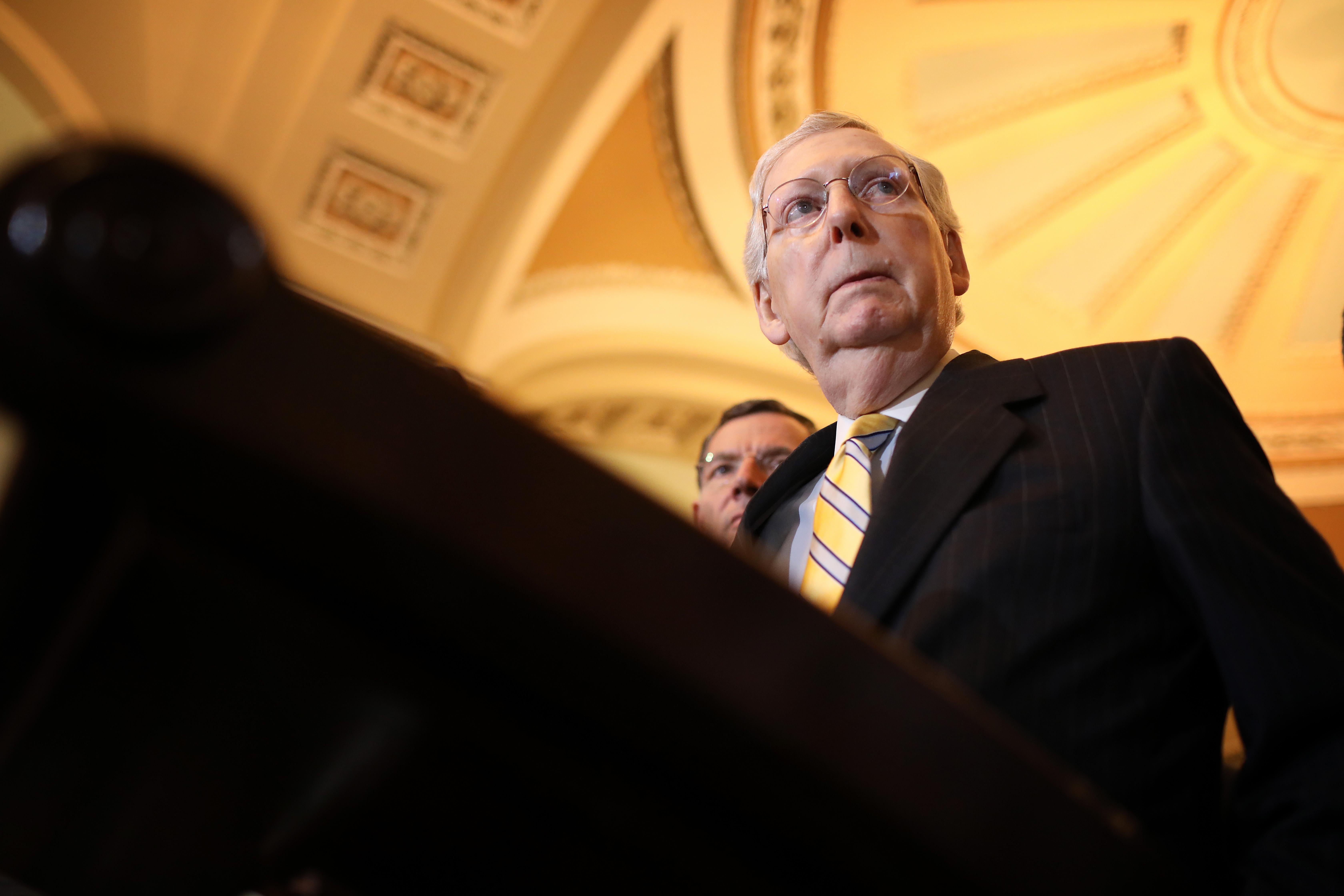Robert Mueller’s first public comments about the Russia investigation Wednesday had everyone from Fox News to the New York Times reporting that House Democrats would now feel increased pressure to begin an impeachment inquiry against the president.
No doubt, the question of whether Donald Trump obstructed justice and should be subject to impeachment is of critical importance to Congress and the nation. But Robert Mueller also began and ended his comments with another issue that he said “deserves the attention of every American.” Namely, that a foreign government made multiple, systematic attempts to interfere in our elections.
Congress is not doing enough to prevent it from happening again, despite ongoing attempts to sound the alarm by cybersecurity experts, intelligence agencies, and Robert Mueller himself.
By the next presidential election, the Russians will have had four years to leverage the knowledge they gained in 2016. That could mean even more harm the next time around. That harm will no doubt include more disinformation on social media and potential attacks on our election infrastructure. And there is every reason to believe other nation-states will now get in on the game.
This week, FireEye Threat Intelligence released a report that appeared to show Iran used fake accounts impersonating U.S. political candidates in the run-up to the 2018 election. One of my Brennan Center colleagues noted accounts were active through September, weeks before the midterm elections, despite the fact that they clearly violated Twitter’s impersonation policy.
Mueller’s remarks and the revelations of these new misinformation campaigns should inspire Congress to take action. Some lawmakers recognize the urgency of the situation and have introduced key bills that would help protect voting infrastructure, or prevent online political advertisements from being purchased secretly by foreign countries. But Senate leadership appears to have foreclosed the possibility of taking further action to protect our elections going into 2020.
Two weeks ago, at a Senate Rules Committee hearing, Sen. Richard Durbin, a Democrat from Illinois, asked Sen. Roy Blunt, a Republican from Missouri, whether the panel would mark up any of the election security bills introduced this year. Blunt’s answer? No.
Blunt’s response had nothing to do with the merit of the bills but was instead a reflection of the fact that Senate leadership would not allow them to receive votes. In a statement that stunned many, Blunt all but threw Majority Leader Mitch McConnell under the bus, saying: “I don’t see any likelihood that those bills would get to the floor if we marked them up. I think the majority leader is of the view this debate reaches no conclusion.”
Congress could do a great deal to make our elections more secure, including providing funds for states to replace outdated and insecure voting machines. Currently 11 states use systems that do not produce a paper backup of a vote, which means that there is no record that can be used to check accuracy of electronic tallies.
Congress can also provide underfunded local election jurisdictions with more cybersecurity resources; require election system vendors to report cybersecurity incidents to both federal and local authorities; and pass the Honest Ads Act, which would make it more difficult for foreign powers to purchase political advertisements on the internet. Each of these ideas has bipartisan support and would make the 2020 elections more secure.
The question of whether the president obstructed justice and should be impeached will no doubt continue to fan outrage on both sides of the political aisle. But let’s save a little of that outrage for those in Congress who continue to obstruct efforts to make our elections more secure.
Future Tense is a partnership of Slate, New America, and Arizona State University that examines emerging technologies, public policy, and society.
